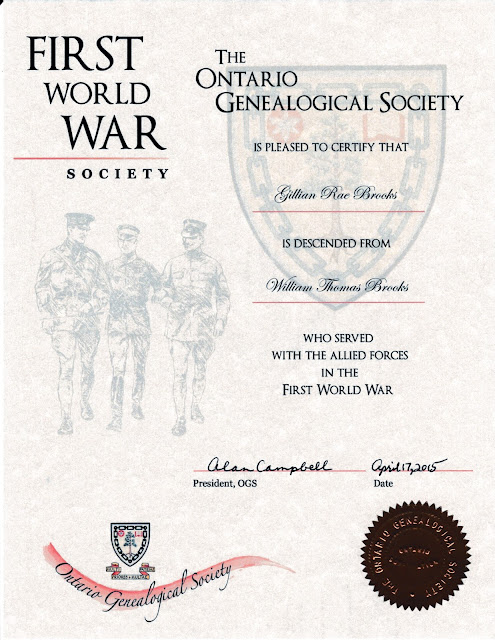My grandparents were Charles Kingswell and Frances Mary Wilkes.Here is a picture of Charles and Frances, not sure when it was taken.
 |
| From the writer's own collection |
Charles and Frances were married at Holy Trinity Church in Ventnor on the Isle of Wight on November 23rd 1883.
 |
| Photo taken by the writer September 28th 1983 |
Frances was given a prayer book upon her marriage that was handed down to her daughter Gertrude, my grandmother. She had carefully pressed a four leaf clover in the book, for luck.
 |
| From the writer's collection |
 |
| From the writer's collection |
Charles was listed as a gardener on the marriage certificate and in the 1881 census. The story goes that he worked at Carisbrooke Castle but I have not been able to confirm this.
 |
| Postcard purchased by the writer at Carisbrooke Castle September 28th 1983 |
Frances Mary did not have a profession listed on the marriage certificate but in the 1881 census she was listed as a cook. Many of the other Wilkes family members also worked as domestic servants. Many of the Kingswell family were listed as labourers. Both families appeared to be solidly working class. No doubt they did not have a lot of money nor a lot of prospects for the future. This probably had a big influence on Charles and Frances' decision to emigrate to Canada.
 |
| Courtesy of Ancestry.ca |
With them were their two young sons: George who was born in 1884 and William who was born on June 4th just days before the voyage. The passenger list shows a John but I believe this was actually William.
 |
| Courtesy of Library and Archives Canada |
They travelled with 49 other passengers in steerage and landed in Quebec City on July 3rd 1885. The family settled in Kingston and later moved to Toronto. Charles and Frances had 10 more children. Sadly, four of their children died in childhood, including George who passed away at the age of 12 after a bout of inflammatory croup.
A two week trip in the steerage of a small vessel would have meant the family were able to take very little with them. They probably had very little to begin with. But one thing they did bring was the family carving set. I still have it, well used and worn but something of value that was brought with them to start their new life in Canada.
 |
| From the writer's own collection |










































